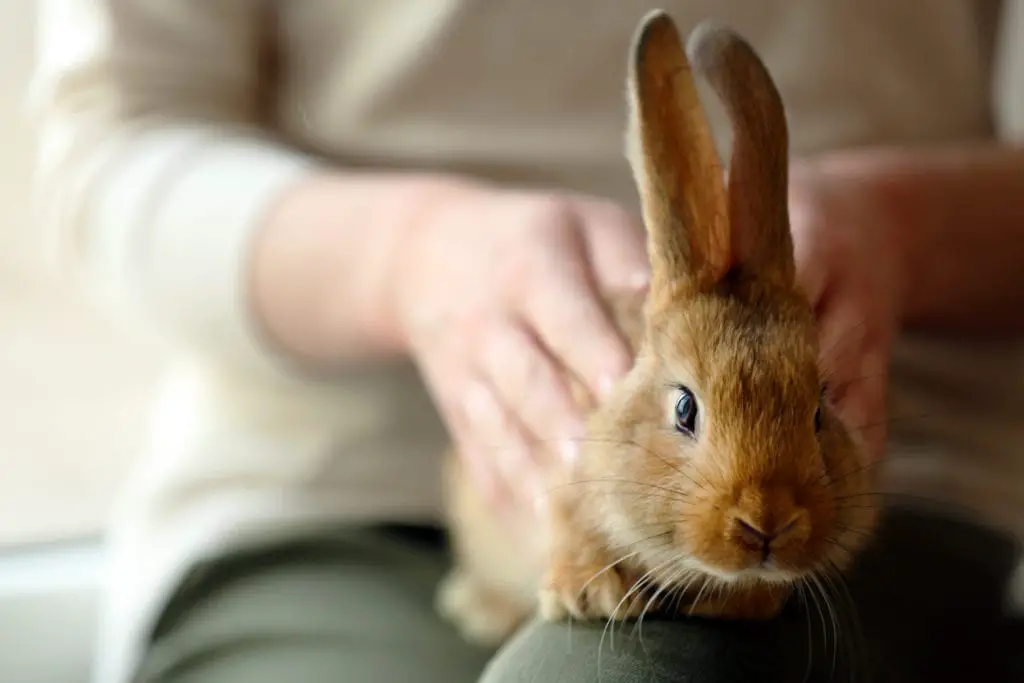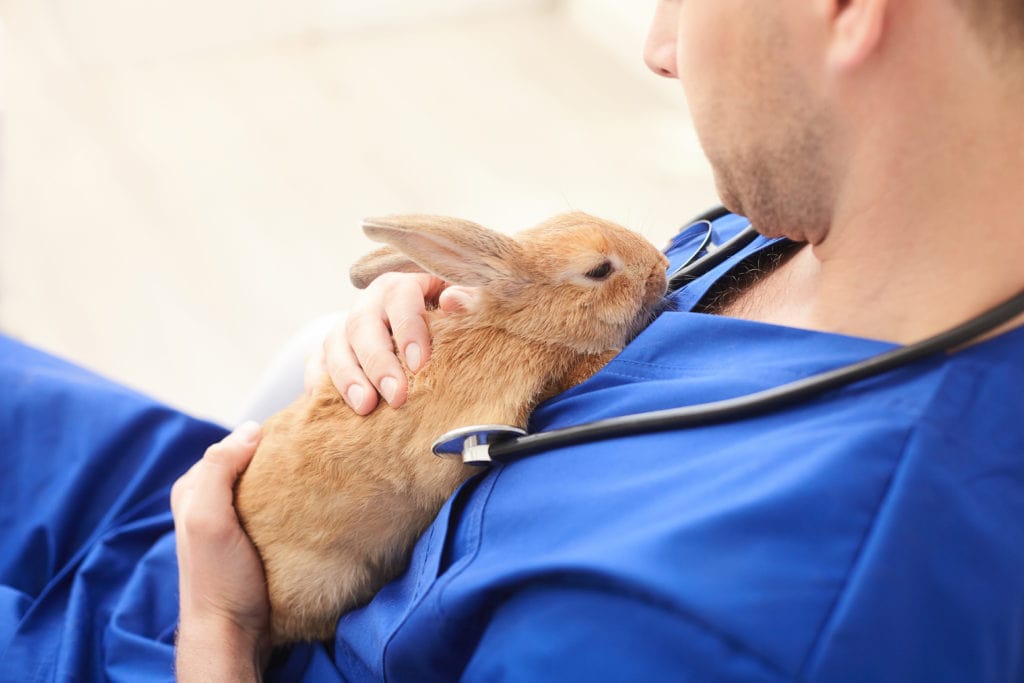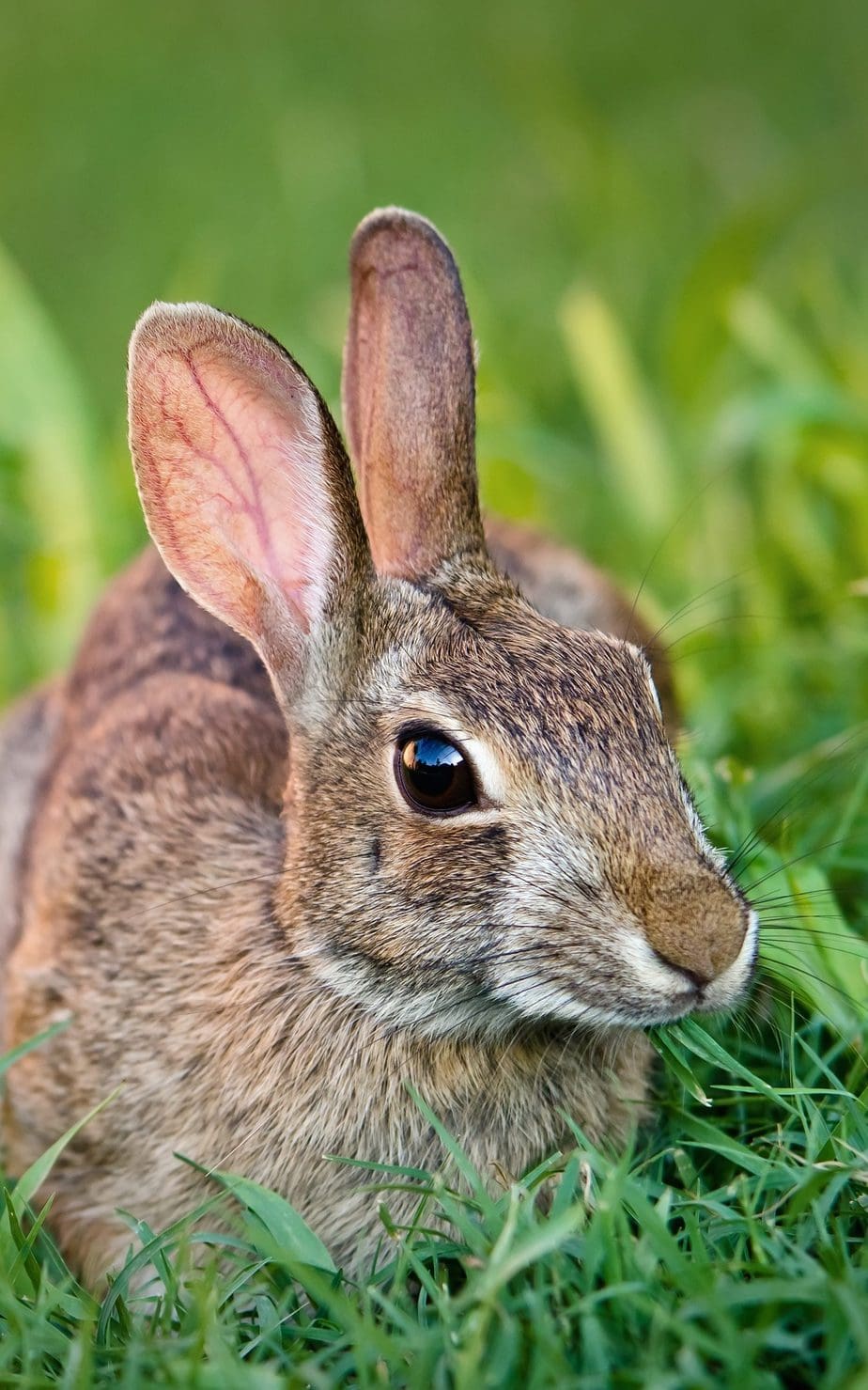
While playing with your rabbit you were petting it as you have always done and you noticed that your pet’s ears were warm to the touch. You wonder if that is normal or if you should start to worry that your rabbit is sick.
A rabbit’s ears should be warm to the touch, due to their body temperature ranging from 100.5 to 103.5 degrees Fahrenheit. Rabbits use their ears to regulate their temperature so cold or hot ears can indicate a fever or a drop in body heat. It is not uncommon for their ears to feel cool if the rabbit is trying to conserve heat.
Other Signs That Your Rabbit Is Sick
Your Rabbit uses body language to communicate and the more time that you spend with your rabbit will give you a good gauge of how they normally act and if they are acting abnormally. This can be a good start to know if your rabbit is feeling under the weather. Many specific examples of how rabbits communicate can be found here.
Some common ways that your rabbit is sick can be seen in its eating habits and in consequence a change in its defecations. Typically a rabbit will eat the food it is given whether it is hay, lettuce, or common rabbit pellets. But if they start to avoid food or favor one specific food, check into these other habits.
Notice if your rabbit is having abnormal walking/hopping gaits. Check if there is dull and missing fur, and notice the movement of your rabbit. Rabbits are active animals and will move around.
You can also notice if there are any changes in its breathing. This can be a good indicator that there is something going on with your rabbit. Be conscious of their respiration.
Many owners will become concerned if they see their rabbit staying in one particular corner of their cage and rarely venturing away from it. This doesn’t necessarily mean your rabbit is sick, however. See my article all about reasons your rabbit may be staying in one corner of its cage here for more.
Sometimes a rabbit when sick can feel bloated with air and will push its stomach onto the floor trying to work the stomach gas out of its body. If you see this, you may want to check into your rabbit’s body temperature and to take some actions of care to help your rabbit.
How to Help Your Rabbit if They Are Sick
Rabbits are very sensitive animals and their health can decline quickly when sick. As an owner, you should work quickly in order to help your bunny when it’s not feeling well.
- Take its temperature. One of the best things to do first would be to take the temperature of your rabbit. This can be a delicate process so there is an attached video that is a safe way to do this without bringing too much discomfort to your bunny.
- Keep it comfortable. The best way to do this is to keep your bunny warm. Wrap it in a blanket or put it under a heat lamp.
- Keep your rabbit hydrated. Much of any organism’s body is made of water and functions better with water stimulus. Keep a bottle nearby and allow your rabbit to drink consistently.
- Feed it soft and easily chewable foods. Of course, it is important to keep your rabbit fed, but it may not want to eat anything. In this case, find soft foods that it won’t have to chew. Thesprucepets.com suggests applesauce or even baby food and has some great suggestions on how to keep track of your rabbit’s health here.

Finally, a great idea is to take your rabbit to the vet. A rabbit’s health is delicate and the vet may take actions such as prescribing medication to help it get back on its feet. The vet will know more about how to diagnose exactly what your rabbit is going through.
How to Keep Your Rabbit Healthy
A rabbit will typically live anywhere from eight to twelve years as a house pet. This means that after the first four years it may become more common for the rabbit to become sick or have problems. Luckily, there are a few things you can do throughout their life to help ensure that your rabbit stays happy and healthy.
- Have regular checkups at your vet. It is suggested that for the first four years of a rabbit’s life there should be an annual check-up with the vet. This is something that will help keep the overall health of your pet in good standing. I suggest you begin seeing a vet every six months after the first 4 years. A more common check-up will help the vet discover any poor health in the body
- Keep a clean cage. This makes a big difference in their overall health although it’s easy to go unnoticed by many owners. I know personally how difficult it can be to keep up on cage maintenance but I’ve worked out quite a few time-saving tricks that might help you manage this time-consuming task. These can be found in my article How to Keep Rabbits’ Cage Clean: 5 Tips That Work.
- Allow 3-5 hours of exercise each day. This will allow the immune system to work more effectively. It will give the rabbit a better chance at being able to function.
- Keep your rabbit on a healthy diet. This should mostly include hay seeing as it gives the bunny the best nutrients. Also, small portions of vegetables that are fresh will keep up the health of your rabbit. Refrain from feeding your rabbit too many pellets, but a small amount is healthy.
Common Types of Sickness in Rabbits
Rabbit illnesses can range from a large variety of external sources to just simple internal discomfort for the rabbit. It is important to be aware of these.

Some of the most common illnesses can be classified under internal problems. This can typically be seen as swellings around the head due to abscesses or tumors. If seen by a veterinarian, most of these can be treated effectively.
Oftentimes a rabbit can be seen with its head tilted, which can be a sign that your rabbit is having a loss of balance. This can be caused by inner ear infections or brain infections.
Many rabbits can get sick based on what they eat causing bacterial infections in their stomach which can quickly result in sickness. This will keep the rabbit from eating. A rabbit should be eating every four to six hours and if they aren’t then a trip to the vet should occur.
A less common disease is known as Myxamatosis. Vets-now.com says;
“It causes a gradual swelling of the area around the eyes, ears, anus, and genitals and can be fatal. You should always get your rabbit vaccinated by your vet to prevent infection. But if you do see any of the signs mentioned, then you should see a vet immediately.”
– Vets-now.com (Source)
These are some important illnesses to be aware of, as a rabbit owner, especially if your begin to sense your rabbit is not feeling well. In most cases, a vet is the best way to begin treatment for your rabbit and should be visited hastily.
Other Useful Articles
- Do Rabbits Need Vaccines? (What You Should Know) – There are a few places in the world where you’ll probably want to get your rabbit vaccinated. To find out where these are, what your rabbit would need to be vaccinated against and how often, take a look at this article.
- This Is Why Your Rabbit Lays on Its Side – Is your rabbit laying on its side all the time? Find out what it means in terms of health and other things you should watch for in this article!
